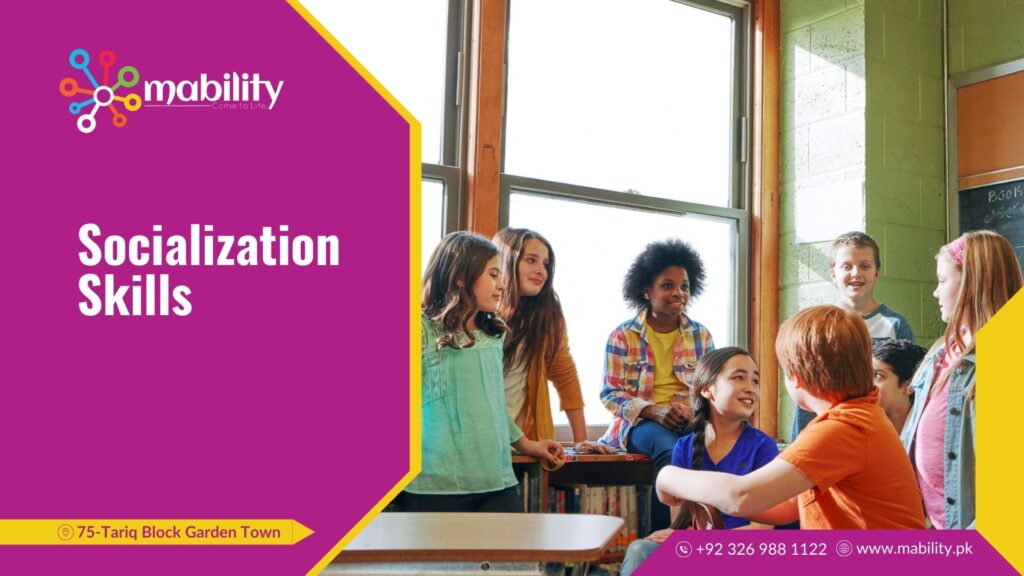
Socialization Skills
Socialization skills are crucial for individuals with autism spectrum disorder (ASD) because they enable them to engage effectively with others, form relationships, and navigate social situations successfully. Autism spectrum disorder is a developmental disorder characterized by challenges in social interaction, communication, and repetitive behaviors. Developing socialization skills can significantly enhance the quality of life for individuals with ASD by facilitating better integration into society, improving self-esteem, and fostering independence.
Here are some key reasons why socialization skills are important for individuals with autism:
Building Relationships:
Socialization skills enable individuals with ASD to develop and maintain relationships with family members, peers, and other community members. Establishing meaningful connections with others provides emotional support, reduces feelings of isolation, and fosters a sense of belonging.
Communication:
Effective socialization often involves verbal and non-verbal communication. Developing social skills helps individuals with ASD to communicate their thoughts, feelings, and needs more clearly, which improves their ability to interact with others and express themselves effectively.
Understanding Social Cues:
Socialization involves interpreting subtle social cues such as facial expressions, body language, and tone of voice. Individuals with ASD may have difficulty understanding these cues naturally, but with practice and support, they can learn to recognize and respond appropriately to social signals, enhancing their social interactions.
Also Read: What is developmental delay
Flexibility and Adaptability:
Social situations can be unpredictable and may require individuals to adapt to changes in plans, routines, or expectations. Developing socialization skills helps individuals with ASD become more flexible and adaptable, enabling them to navigate new or unfamiliar situations with greater ease and confidence.
Conflict Resolution:
Socialization involves resolving conflicts and negotiating differences with others. Individuals with ASD may struggle with conflict resolution due to difficulties in perspective-taking or managing emotions. However, with guidance and support, they can learn strategies for peacefully resolving conflicts and maintaining positive relationships.
Independence and Autonomy:
Strong socialization skills empower individuals with ASD to engage in activities independently, make choices, and advocate for themselves in social settings. This promotes greater autonomy and self-determination, leading to increased confidence and a sense of empowerment.
EMPLOYMENT AND COMMUNITY INTEGRATION:
Many aspects of daily life, including employment and community involvement, require effective social skills. By developing socialization skills, individuals with ASD can enhance their opportunities for employment, participate more fully in community activities, and contribute meaningfully to society.
To support the development of socialization skills in individuals with ASD, various interventions and strategies may be employed, including social skills training, behavioral therapies, peer-mediated interventions, and participation in social groups or clubs tailored to their interests and needs. Additionally, early intervention and ongoing support from family members, educators, therapists, and other professionals play a crucial role in helping individuals with ASD build and refine their socialization skills over time.
Also Read: Parenting styles
